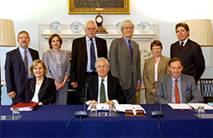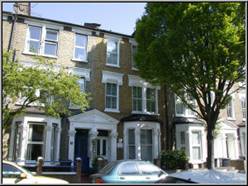128: UK market update
04-03-2007
PropertyInvesting.net Team
PropertyInvesting.net brings you a summary of the last UK property market analysis:
The UK Budget: Nothing to shocking for the property investors in the budget. If anything, unlike last years SIPPs U-turn, this budget quietly gave some tax benefits to buy-to-let investors. For both UK and overseas property, you will now only be taxed on actual rental income instead of “intended” rental income (or the rental income of the tenancy contract). Hence if you have empty properties, you tax bill will be reduced. Also, for higher rate income tax earners, the new 20% banding (reduced from 22%) will be benefit since rental income is not subject to the increased national insurance payments on high income earners. For someone with a medium sized property portfolio earning about £44,000, this is likely to lead to a saving of some £1,500 per annum. Its likely an unintended consequence of fiddling with the national insurance and income tax rates (22 to 20% and scrapping the 10% bracket) – but all the same, every little bit helps.

UK Market Update: Rightmove reported a +0.9% house asking prices in March in England and Wales. Highest increases were SE England (+2.1%), London (+1.8%), South-West (+1.9%), North (+2%) and West Midlands (+2%). Wales reported a drop of -0.3%. Prices in Southwark (+5%) and Lambeth (+4.1%) showed the biggest increase in London. Clearly the mini-boom continues though there are some early signs of a cool down. No sign of any crash as yet. The two recent interest rises to 5.25% seem to have had little impact as yet. It’s likely rate rises will start to bite soon, particularly if rates rise to 5.5%. However, if and when they drop back again, it’s likely to re-invigorate momentum. There could also be a shortage of homes on the market after June 1st 2007 when home information packs are introduced – some people thing there will be a rush to sell properties before this date followed by a drought of properties for sale, because of the price of the HIPs.
UK Interest Rates: CPI inflations is still 2.8%, predicted to drop to about 2% by year end. Oil prices have risen from $53/bbl to danger levels of $66/bbl. GDP is 0.7% in the last quarter – 2.7% in the last year. At midday Thursday 5th April, the Bank of England will announce their monthly interest rate decision. We put a 40%  chance of a rise in April and a 40% chance of a rise in May. We think there is almost no chance of a rise in both months. We also think there is close to zero chance of a fall in interest rates in the next two months. So there is a very high chance in the next two months of a 0.25% rise – then likely staying at 5.5% for some months. Forward interest rate curves show 5.7% by end 2007 though these are normally 0.2% higher than actual levels. So expect 5.5% for the rest of 2007 in your cash-flow forecasts – we hope to see a 0.25% drop by year end, but it’s looking less likely now oil prices have risen.
chance of a rise in April and a 40% chance of a rise in May. We think there is almost no chance of a rise in both months. We also think there is close to zero chance of a fall in interest rates in the next two months. So there is a very high chance in the next two months of a 0.25% rise – then likely staying at 5.5% for some months. Forward interest rate curves show 5.7% by end 2007 though these are normally 0.2% higher than actual levels. So expect 5.5% for the rest of 2007 in your cash-flow forecasts – we hope to see a 0.25% drop by year end, but it’s looking less likely now oil prices have risen.
From Repossessions to Buy-to-Let: The levels of UK repossessions has risen significantly in the last year albeit from very low levels. But is this a serious issue? As interest rate rises have started to bite, in the lower priced areas where the lower income first time home buyer have overstretched thems elves, there will be increasing levels of repossessions. In a normal market this might be a signal for house price to drop. But in the UK – it could be different this time. The reason is that many buy-to-let investors have very high net worth and cash reserves – and are likely to view these repossessions as opportunities to purchase property at below market value. So there will be a transfer of wealth from the distressed first time buyers to the large buy-to-let investors as some consolidation takes place. This type of consolidation is normal in business – the larger players who have the financial acumen, expertise and muscle will leverage their skills and help purchase property from distressed sellers that do not have these skills (otherwise they probably would not have got themselves into distress). Because the population is rising, there is a housing shortage, employment remains strong, Gordon Brown has not hit investors with big tax hikes and the economy is strong – prices are no likely to drop but heir
elves, there will be increasing levels of repossessions. In a normal market this might be a signal for house price to drop. But in the UK – it could be different this time. The reason is that many buy-to-let investors have very high net worth and cash reserves – and are likely to view these repossessions as opportunities to purchase property at below market value. So there will be a transfer of wealth from the distressed first time buyers to the large buy-to-let investors as some consolidation takes place. This type of consolidation is normal in business – the larger players who have the financial acumen, expertise and muscle will leverage their skills and help purchase property from distressed sellers that do not have these skills (otherwise they probably would not have got themselves into distress). Because the population is rising, there is a housing shortage, employment remains strong, Gordon Brown has not hit investors with big tax hikes and the economy is strong – prices are no likely to drop but heir  will be more repossession opportunities. That said, the Banks need evidence (to prevent litigation) that the property has been properly marketed and is being sold at true market value – so repossessions do not come at a discount in the current market. The best repossessions are properties that look tatty and superficially ugly (rubbish lying everywhere) but just need a good decoration to bring them back to normality. These properties might sell for £20,000 below similar well decorated properties, but only need a £2,000 tidy up and paint job. It’s important to see through the mess and look at the fabric of the property – imagine what it would look like if properly decorated. I’ve yet to view a repossession was not messy and needed re-decorating – and hence they normally sell for considerably less than normal properties.
will be more repossession opportunities. That said, the Banks need evidence (to prevent litigation) that the property has been properly marketed and is being sold at true market value – so repossessions do not come at a discount in the current market. The best repossessions are properties that look tatty and superficially ugly (rubbish lying everywhere) but just need a good decoration to bring them back to normality. These properties might sell for £20,000 below similar well decorated properties, but only need a £2,000 tidy up and paint job. It’s important to see through the mess and look at the fabric of the property – imagine what it would look like if properly decorated. I’ve yet to view a repossession was not messy and needed re-decorating – and hence they normally sell for considerably less than normal properties.
back to top

 chance of a rise in April and a 40% chance of a rise in May. We think there is almost no chance of a rise in both months. We also think there is close to zero chance of a fall in interest rates in the next two months. So there is a very high chance in the next two months of a 0.25% rise – then likely staying at 5.5% for some months. Forward interest rate curves show 5.7% by end 2007 though these are normally 0.2% higher than actual levels. So expect 5.5% for the rest of 2007 in your cash-flow forecasts – we hope to see a 0.25% drop by year end, but it’s looking less likely now oil prices have risen.
chance of a rise in April and a 40% chance of a rise in May. We think there is almost no chance of a rise in both months. We also think there is close to zero chance of a fall in interest rates in the next two months. So there is a very high chance in the next two months of a 0.25% rise – then likely staying at 5.5% for some months. Forward interest rate curves show 5.7% by end 2007 though these are normally 0.2% higher than actual levels. So expect 5.5% for the rest of 2007 in your cash-flow forecasts – we hope to see a 0.25% drop by year end, but it’s looking less likely now oil prices have risen.  elves, there will be increasing levels of repossessions. In a normal market this might be a signal for house price to drop. But in the
elves, there will be increasing levels of repossessions. In a normal market this might be a signal for house price to drop. But in the  will be more repossession opportunities. That said, the Banks need evidence (to prevent litigation) that the property has been properly marketed and is being sold at true market value – so repossessions do not come at a discount in the current market. The best repossessions are properties that look tatty and superficially ugly (rubbish lying everywhere) but just need a good decoration to bring them back to normality. These properties might sell for £20,000 below similar well decorated properties, but only need a £2,000 tidy up and paint job. It’s important to see through the mess and look at the fabric of the property – imagine what it would look like if properly decorated. I’ve yet to view a repossession was not messy and needed re-decorating – and hence they normally sell for considerably less than normal properties.
will be more repossession opportunities. That said, the Banks need evidence (to prevent litigation) that the property has been properly marketed and is being sold at true market value – so repossessions do not come at a discount in the current market. The best repossessions are properties that look tatty and superficially ugly (rubbish lying everywhere) but just need a good decoration to bring them back to normality. These properties might sell for £20,000 below similar well decorated properties, but only need a £2,000 tidy up and paint job. It’s important to see through the mess and look at the fabric of the property – imagine what it would look like if properly decorated. I’ve yet to view a repossession was not messy and needed re-decorating – and hence they normally sell for considerably less than normal properties. 
